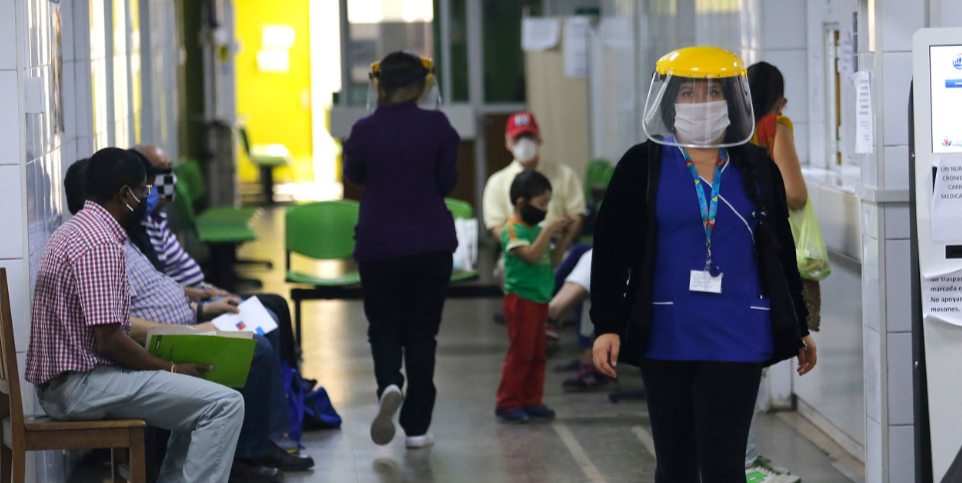Government reports change in definition of confirmed and suspected cases of Covid-19

The Minister of Health, Jaime Mañalich, announced a modification to define confirmed and suspicious cases of Covid-19 on Monday as the product of a new instruction from the Advisory Council.
Signs indicating an eventual contagion from now on are: fever greater than 37,8 degrees without other causes, symptoms that suggest a respiratory infection - muscle or throat pain, Cough, respiratory rush, Diarrhea, breathing in a hurry-, and acute disturbance of smell or taste.
Regarding confirmed cases, the new instruction raises three scenarios for identifying. First of all, the one that follows the course of what has been implemented since the beginning of the pandemic: the patient has some of the symptoms listed and a positive PCR test for SARS-Cov2.
Also, if a suspicious case presents characteristic images of the virus on the chest scanner, or either, has some of the symptomatology and a positive serological test for IGG and/or IGM - that is, quick exam- will be listed as positive.
The minister added that, According to the who, in the last case “this HIV-positiveness suggests that the person will be protected against Covid-19, the effectiveness of this line of defense by antibodies is still known”.
In this sense, the latest findings argue that “99 percent will be able to lift IGG antibodies 21 days after the infection began”, according to Mañalich.
“This positivity increases from 50 percent on day 7 to nearly 100 percent on the 21st, which means that the later the test is done, more likely to have a true positive”, detailed.
The new guidelines for tackling the pandemic will be published by the Minsal during this day.
“We are sought to make the detection as early as possible and catch hopefully 100 percent of suspected cases; is the only central way and strategy for the control of the epidemic that we have in Chile with the aim of en applying isolation measures for the sick and quarantines for contacts”, dr. Maria Teresa Valenzuela, member of the Advisory Council, pointed out in A New Morning.
Immunity would last a month
Regarding the controversial high-quality card announced by the Government, awarded to clinically recovered patients after 14 days, Valenzuela pointed out that the likelihood of them catching a “it's very remote”.
“People are known to be protected from a new infection and not infecting, Now, how effective and for how long they are protected, we leave it as a question, but from the experience you have, at least for a month”, Assured.
Also, the expert clarified that while PCR is effective in diagnosing the virus, the “the most out we have is during the first few days of symptoms, because that's where there's the biggest viral load capable of being detected”, which led to the approval of the new testing alternatives.
While Minister Mañalich emphasized that the high-quality card “suggests that the person will be protected, the effectiveness and duration of this line of defense by antibodies is still known”.
“99 percent of the people who made the infection will be able to lift IgG antibodies 21 days after the infection began. We are not in favour of handing you over to the 'Covid card’ a certification of safe immunity”, Sentenced.
Immunologist: “The license is not something I would recommend”
However, public health specialist and immunologist Catterina Ferreccio, member of the Minsal Advisory Committee, said that the “carnet covid” doesn't make much sense.
In Cooperative, the professional explained that the outcome of the exam “it's a private fact for me, but - for example- for health staff is super important, but they don't need a license”.
“That's a political issue that's not something I'd recommend, because here in Chile it's for more permanent things. This is a transient infection that, maybe, in five months it becomes vulnerable. I'd have to put it on a four-month term.”, Said.
